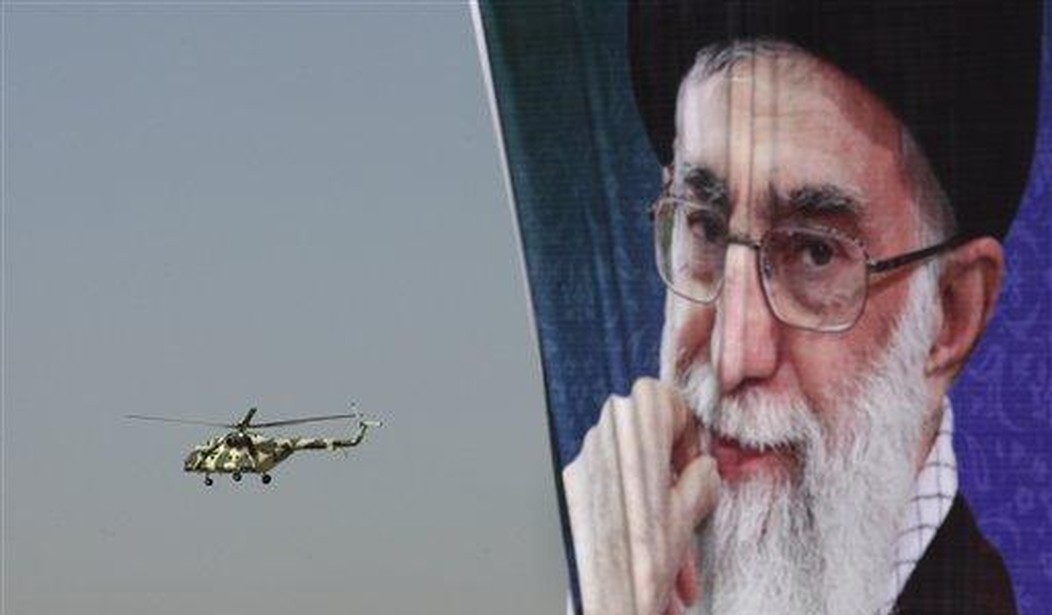Last month, the Biden administration added four Iranian cargo planes to its U.S. Department of Commerce blacklist of aircraft involved in export control violations. Among the aircraft is a Boeing 747 operated by Iran’s airline Qeshm Fars Air, which the U.S. Department of the Treasury sanctioned in 2019 for its role supplying Syria-based Iranian forces and their proxies with military equipment. According to Treasury, the airline operated regular cargo flights to Damascus “delivering cargo, including weapons shipments” on behalf of Iran’s Revolutionary Guard Corps’ special operations and expeditionary branch, the Quds Force.
Qeshm Fars Air’s planes have been flying to Russia since the February invasion of Ukraine and are currently delivering military equipment. According to the Department of Commerce, these aircraft could be transporting drones, which Iran is selling to Moscow “to support Russia’s war machine.” But the Qeshm Fars flights also continue to supply Iranian forces in Syria and their proxies, highlighting the central role this regime-controlled airline plays in Iran’s ongoing support for Russian aggression and Syrian oppression. The Biden administration should heighten the impact of its sanctions by designating the pilots and crews that operate these flights, not just the aircraft. Sanctioning the planes makes it harder for them to secure maintenance services and jet fuel, since service firms do not want to risk punishment from Treasury. Targeting crews as well as planes could lead to countries denying them entry or form the basis for local law enforcement actions.
Designating three Iranian pilots, until recently detained in Argentina, would be a great place to start this effort.
The three Iranians—Gholamreza Ghasemi, Abdolbaset Mohammadi, and Saeid Valizadeh— were part of a 19-member crew of five Iranians and 14 Venezuelans who landed in Buenos Aires on June 6, 2022, aboard a cargo aircraft operated by Emtrasur, a subsidiary of the U.S.-sanctioned Venezuelan airline, Conviasa. The U.S. Department of Justice issued an international warrant to seize the plane and local authorities have investigated the crew members on suspicion of terrorism. Twelve of their companions were allowed to return home in early September, but Ghasemi, Mohammadi, and Valizadeh were detained longer, likely due to their direct involvement in Qeshm Fars Air weapons deliveries to Syria on behalf of the Quds Force. The three were only allowed to leave Argentina last weekend.
Recommended
New evidence seized aboard the aircraft by local authorities, which the author obtained from an Argentinian source familiar with the investigation, proves the three pilots’ involvement in at least 18 flights between Tehran and Damascus, operated by Qeshm Fars Air, between the summer of 2020 and May 2022. These flights were likely carrying military assistance destined to Iran’s military operations in Syria and to Iran’s proxies in the area.
Qeshm Fars Air flight logs found aboard the seized aircraft and made available to the author show that Ghasemi flew seven of the 18 Tehran to Damascus roundtrip flights; Mohammadi flew 17 out of 18 of those flights; and Valizadeh flew once, on May 17, 2022, just three weeks before the Emtrasur aircraft landed in Buenos Aires. Ghasemi is the most important of the three: corporate records for Qeshm Fars Air, obtained from the commercial platform Sayari Analytics, list the Emtrasur aircraft’s captain as a shareholder, board member, and managing director. Given his senior position in the airline, and his active role as an aircraft captain flying cargo on behalf of the Quds Force, Treasury should sanction him. Such action would have significant consequences for Ghasemi’s ability to travel internationally. Additionally, a terrorism designation would provide additional evidence to Argentinian authorities currently involved in the investigation against Ghasemi and his associates, which, despite their release, is ongoing.
In most cases, reported Israeli strikes on Iranian and Syrian military objectives in Syria coincide with, or shortly follow the arrival of the Qeshm Fars Air cargo to Damascus. As the main carrier of weapons’ deliveries to Syria, the short time that elapses between its flights to Syria and Israeli attacks on Syrian military targets is suggestive of a correlation, namely that Israel is targeting military equipment and technology that Qeshm Fars Air is delivering.
For example, on May 21, 2022, four days after Valizadeh’s lone flight of the blacklisted Qeshm Fars Air aircraft, Al Jazeera reported Israeli strikes against ammunition depots near Damascus. And on April 9, 2022, four days after Mohammadi flew the same aircraft to Damascus, Al Arabiya News reported Israeli attacks in Syria against weapons depots and centers where Iran is manufacturing and developing missile and unmanned aerial vehicles. Indeed, the evidence of a correlation between certain Qeshm Fars Air flights and possible arms deliveries that Israel targeted extends to other flights, beyond the ones known to be operated by Ghasemi, Mohammadi and Valizadeh. This warrants sanctions against not just the three currently detained pilots in Argentina, but their colleagues as well.
Flight records from the commercial flight tracker Flight Radar 24 show that the Commerce-blacklisted aircraft, Qeshm Fars Air EP-FAA, flew to Damascus and back on December 4, 2021. Three days later, Al Jazeera reported Israeli attacks on Latakia’s seaport. EP-FAA flew to Damascus and back on October 19, 2020. Israel targeted three Iranian-backed militias near Quneitra two days later, as reported by The Times of Israel. EP-FAA also flew to Damascus and back on July 13, 2020. The Associated Press reported that Israel had carried out an attack seven days later against targets around Damascus, including ammunition depots, which killed a Hezbollah fighter. According to Iran International, Western intelligence sources revealed that a June 2022 Israeli strike on Damascus international airport forced Qeshm Fars Air to temporarily suspend its flights to Syria. The same report mentions Ali Naghi Golparast, the CEO of Qeshm Fars Air and a board member of the airline alongside Ghasemi, as the key man in charge of weapons’ logistics and deliveries on behalf of the Quds Forces. Chats that Argentinian authorities found on Ghasemi’s phone make explicit mention of Golparast as someone who could intervene to facilitate the crew’s release.
The evidence against Iranian aircraft’s material support for terrorism is overwhelming. Treasury sanctions provide the legal basis for targeting individuals involved in these operations. The evidence that emerged from the Argentinian investigation into the Emtrasur flight has now identified three individuals directly implicated in these operations, which may lead to the identification of more crew members involved in sanctionable activities.
Ghasemi, Mohammadi, and Valizadeh no longer languish in a hotel in Buenos Aires, and may soon resume their active roles in Iran’s military airlifts to Syria and Russia. The Biden administration should sanction Iranian pilots to further disrupt Iran’s cargo operations.
Emanuele Ottolenghi is a Senior Fellow at the Foundation for Defense of Democracies, a non-partisan research foundation in Washington D.C.
























Join the conversation as a VIP Member